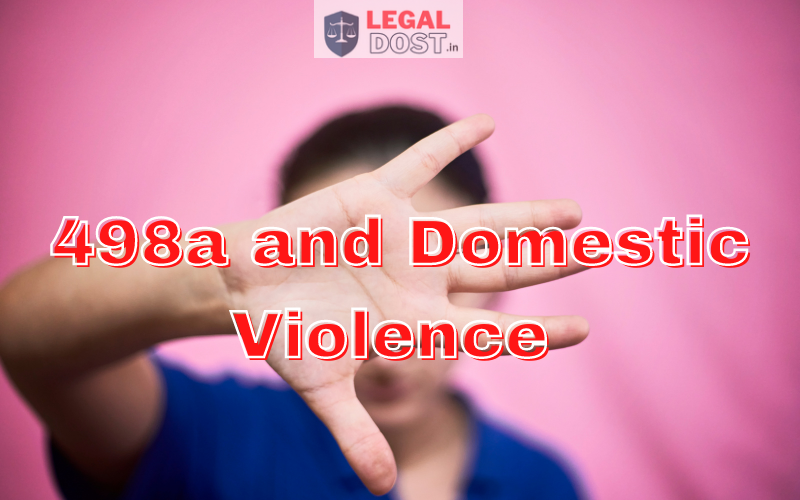Domestic violence is a serious issue
It is a disturbing trend that has unfortunately become a part of our society, with many women and men facing abuse at the hands of their partners or family members. Domestic violence can take various forms, including physical, emotional, sexual, and financial abuse. It is a violation of human rights and can have severe consequences on the victim’s physical and mental health.
According to data from the National Family Health Survey (NFHS), 35% of women in India have experienced physical or sexual violence from their partners. The figure is even higher for women from marginalized communities, with 46% of Dalit women and 43% of Adivasi women experiencing such abuse. The problem is not just limited to women; men can also be victims of domestic violence. However, the majority of victims are women, and the issue is often overlooked or dismissed as a personal matter.
The legal system
In India has come a long way in addressing the issue of domestic violence. The Protection of Women from Domestic Violence Act (PWDVA) was passed in 2005 to provide a comprehensive legal framework to protect women from abuse and to provide them with the necessary support and assistance. The act defines domestic violence as any act, conduct, or behavior that harms or injures a woman or a child and includes physical, sexual, emotional, and economic abuse.
Under the PWDVA, victims of domestic violence can seek protection orders, which are legal documents that prohibit the abuser from committing further acts of violence. The act also provides for emergency and interim protection orders, which can be obtained within 24 hours of filing a complaint. The act also provides for the appointment of protection officers who can assist victims in obtaining protection orders and provide them with legal, medical, and psychological support.
However, despite the existence of the PWDVA, the issue of domestic violence remains a significant problem in India. Many women are unaware of their legal rights and are unable to access the necessary support and assistance. Others are afraid to speak out due to fear of retribution from their abusers. The lack of awareness about the act and the lack of proper implementation also contribute to the problem.
Here are some steps that you can take if you or someone you know is a victim of domestic violence:
- Reach out for help: If you are a victim of domestic violence, it is essential to speak out and seek help. You can reach out to friends, family, or a trusted authority figure for support. You can also seek help from the police or a domestic violence helpline. It is important to remember that you are not alone and that there are people who can help you.
- Document the abuse: It is essential to document the abuse you are facing. Keep a record of the dates, times, and details of the incidents of abuse. You can also take photographs or video recordings of the abuse if it is safe to do so. This evidence can be used in court to support your case.
- Seek a protection order: If you are in immediate danger, you can seek an emergency protection order from the police or a protection officer. If the abuse is ongoing, you can seek an interim protection order from the court. These orders prohibit the abuser from committing further acts of violence and provide you with temporary relief.
- File a complaint: If you are a victim of domestic violence, you can file a complaint with the police or a protection officer. You can also seek legal assistance from a lawyer or a non-governmental organization to file a complaint. It is essential to remember that you have the right to seek legal protection and that you should not be afraid to speak out.
- Seek medical attention: If you have been injured as a result of domestic violence, it is essential to seek medical attention as soon as possible. Your physical and emotional well-being is crucial, and seeking medical care can help you to recover from any injuries and get the necessary treatment. It is also important to document any injuries sustained as a result of the abuse, as this can be used as evidence in court.
In addition to the steps mentioned above, there are also several organizations and initiatives in India that can provide support and assistance to victims of domestic violence. Some of these include:
- The National Commission for Women: This is a statutory body established by the Government of India to protect and promote the rights of women. The commission provides legal assistance, counseling, and support to victims of domestic violence and works to raise awareness about the issue.
- The National Domestic Violence Helpline: This is a 24/7 helpline that provides support and assistance to victims of domestic violence. The helpline can be reached at 181 and provides counseling, legal assistance, and referrals to other organizations and agencies that can provide support.
- The All India Women’s Conference: This is a non-governmental organization that works to promote the rights of women and girls in India. The organization provides legal assistance, counseling, and support to victims of domestic violence and works to raise awareness about the issue.
Domestic violence is a serious issue that affects millions of people in India. It is a violation of human rights and can have severe consequences on the victim’s physical and mental health. However, there are steps that you can take if you or someone you know is a victim of domestic violence. By speaking out and seeking help, you can take control of the situation and get the necessary support and assistance. It is essential to remember that you are not alone and that there are people and organizations that can help you.
Bibhu Mishra is a prolific writer who has published many books spanning various genres. He is a legal enthusiast and an avid researcher of cutting-edge technology, diving into fascinating realms to bring captivating narratives to life.



